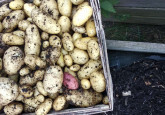Made from plants, vitamins or minerals, food supplements are used to boost the body by providing it with nutrients that it does not receive through the usual diet. They often take the form of capsules, liquid ampoules or powders and offer various benefits. What exactly are they, why take them and is it in everyone's interest to do so?
What are food supplements?
For several years now, food supplements have had an official definition, set out in Directive 2002/46/EC of the European Parliament: "foodstuffs whose purpose is to supplement a normal diet and which constitute a concentrated source of nutrients or other substances with a nutritional or physiological effect". They are therefore foodstuffs that provide the body with specific nutrients, combined with a balanced diet, and which can have both physical and mental effects. In fact, food supplements are nowadays consumed for many reasons: to strengthen one's immune defences, to better resist the cold, to lose weight, to reduce the inconveniences of pregnancy or the menopause, but also to prevent memory disorders, for example.
In fact, they provide a natural response to several problems posed by the modern lifestyle, starting with daily stress and a diet that is increasingly poor in nutrients. Food supplements are not considered by the authorities as medicines. They are not intended to cure specific diseases, but to supplement a normal diet with specific vitamins, minerals or nutrients. However, they are subject to verification by the Directorate for Competition, Consumer Affairs and Fraud Control (DGCCRF) before being marketed. This institution has drawn up a list of ingredients authorised in the composition of products sold as food supplements and analyses each product before approving its sale.
3 reasons to use food supplements
The purpose of food supplements is not to treat, but rather to strengthen the body and provide it with elements that it no longer obtains from food alone. There are three main reasons for consuming them: the deterioration in the quality of today's food, today's increasingly stressful lifestyle, and the lack of natural light.
- Less healthy, mineral-poor food
Generally speaking, it is estimated that only 2-5% of the French population eat a truly balanced diet. Today's diet is full of refined sugars and saturated fatty acids that the body is not designed to handle. These chemical components often cause chronic fatigue in those who consume them and are among the main causes of overweight. In addition, fruits and vegetables, mass-produced with chemical fertilisers and pesticides, are much less rich in minerals, nutrients and vitamins than before. Oranges, for example, contain much less vitamin C than they did 50 years ago. The same applies to tomatoes and potatoes. On the other hand, the refining of cereals would remove up to 80% of their natural magnesium. As a result, the general diet contains less protein and nutrients, which are necessary for good health, and more and more people are suffering from nutritional deficiencies.
- A stressful lifestyle
The urban lifestyle is accompanied by a constant level of stress: environmental pollution, overload of work and responsibilities, work/life balance disrupted with the advent of teleworking, leisure activities, sport, going out, etc. To these constraints must be added the changes of season, which put the body and the immune system to a severe test. Physical and psychological stress causes real damage and consumes a lot of energy and nutrients. It therefore contributes to chronic fatigue and certain deficiencies.
- A decrease in exposure to natural light
Among the deficiencies of concern to the medical world is that of vitamin D. According to the Institut de Veille Sanitaire (InVS), 80% of the French population lacks it. Yet vitamin D is essential for strengthening the immune system and bone resistance and is synthesised in the body through exposure to the sun. Massive sedentarisation and teleworking inevitably reduce the amount of time spent outdoors, especially in autumn and winter, when the days and temperatures decrease. Vitamin D is difficult to find in the diet, so many people are advised to take a dietary supplement, like iron or magnesium, for example.
Who can take food supplements?
Food supplements are intended to make up for these nutrient deficiencies, some of which may affect certain groups more than others. Pregnant women, young children, professional athletes, smokers, but also the elderly, the sick or convalescent, as well as very sedentary people working all day at a computer screen, and simply very stressed individuals, can find the minerals their body needs in certain plants.
Spirulina, for example, has a remarkable natural iron concentration and seems ideal for pregnant women. Ginseng, on the other hand, has the virtue of toning the body, while zinc, selenium and asthaxanthin contain a high dose of antioxidants, which are ideal for improving intellectual performance. Taking food supplements brings many benefits to the body and mind. Ecosystem Laboratoire presents you with a whole range that will meet your specific needs.










